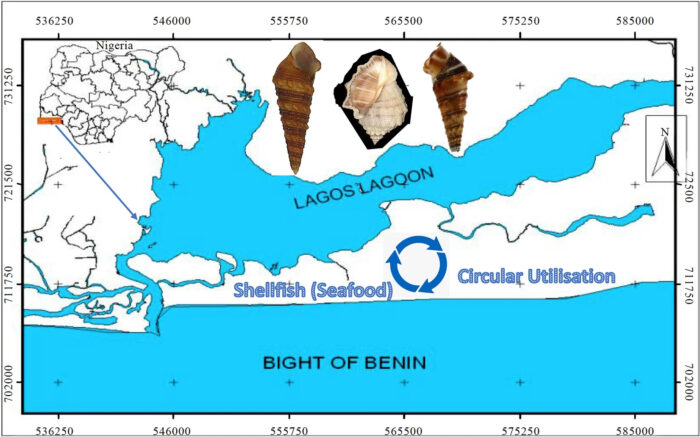Spotlight on LMICs – Need Some Inexpensive, Readily Available Minerals? How About Periwinkles
As the worlds’ population is expected to hit ~10 billion by 2050, the importance of circular utilization for a sustainable approach to the use of available resources becomes critical. Through circular economy the life cycle of resources is extended. In West Africa, periwinkles have been the most dominant species among aquatic molluscs and have successfully invaded several parts of aquatic ecosystems. They are known to be a relatively cheap source of protein, and their nutritional composition, accessibility, and cost is the major reason for high market demand. However, little was known of the content of its exoskeleton. Therefore, the authors set out to analyze the proximate composition, nutritionally significant minerals, trypsin inhibitors, and carotenoids of Tympanotonus fuscatus, Pachymelania aurita, and Thais coronata shells. The study results showed several variations among species based on their proximate, mineral, and phytochemical components:
- T. fuscatus was the best due to its high fat and protein content and low ash and crude fibre content.
- T. fuscatus and P. aurita had shells with significant amounts of trypsin inhibitor, making them less suitable for livestock feed.
- Their low crude fiber and fat contents make them suitable for processing complementary foods, especially for hypertensive patients and those suffering from fat-related diseases.
- The high percentage of CaCO3 makes them a probable source used in the production of slurry for chromatography.
The author’s findings suggest that periwinkle shells contain specific minerals that can be applied in numerous industries. Sustainable incorporation of these shells in several applications after processing will help to enhance the usage of these essential, less expensive, and readily available materials while promoting a circular bio-economy.


Dr. Elegbede is a part of the Coasts Global Research Network of Future Earth. His research is focused on marine and coastal resources with a particular interest in examining social and ecological dimensions to coastal resources. He is interested in applying a holistic sustainability approach to environmental issues and their impact on resources. Dr. Elegdebe is a lecturer and researcher within the Department of Fisheries, Lagos State University, Nigeria.
Elegbede I, Lawal-Are A, Oloyede R, Sanni R, Jolaosho T, Goussanou A, and Ngo-Massou V. (2023). Proximate, Minerals, Carotenoid and Trypsin Inhibitor Composition in the Exoskeletons of Seafood Gastropods and their Potentials for Sustainable Circular Utilisation. Sci Rep. 13, 13064.
https://www.nature.com/articles/s41598-023-38345-w
Do you have a recent publication within the Global South that you would like spotlighted? Share your publication with Makyba Charles-Ayinde at Makyba.charles-ayinde@futureearth.org for a possible feature!
DATE
December 19, 2023AUTHOR
Makyba Charles-AyindeSHARE WITH YOUR NETWORK
RELATED POSTS
Spotlight on LMICs – Getting Up To Speed on the Pacific Islands: A Plan for Resilience
Spotlight on LMICs – Tired of Breathing in Pollutants? Time for Better Fuel Economy and Vehicle Standards
Spotlight on LMICs – The Future’s Juggernaut: Positioning Research as Anchors for Environmental Health